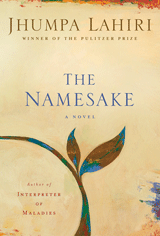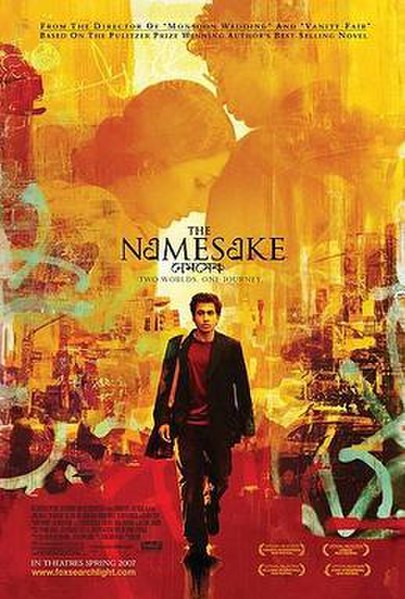Last Sunday, I went to see The Namesake with my dad and brother. Mira Nair’s film is based on the book of the same name by Jhumpa Lahiri. It is the story of a young couple who move to the United States from India, and settle there as they start their family. The movie addresses the challenges faced by immigrants – isolation, unfamiliarity with a new culture, a longing for one’s homeland and family – and it also illustrates the complex parent-child relationships that emerge from raising one’s children in a country that is not your own.
When I read Lahiri’s Pulitzer prize-winning novel, it moved me deeply in several different ways: the book is beautifully written with prose that is crisp yet vividly descriptive. On another level, this book hit a deeper emotional chord because its narrative corresponds in many ways to the story of my own parents. They left their home and families to move to Canada, where my brother and I were born. We, like Gogol and Sonia in the film, grew up between two cultures, Indian and Canadian.
This life straddled between two cultures gave my childhood a richness and texture of its own. We had our Canadian lives (imagine the only South Asian family in a rural New Brunswick town) – friends, school, activities – but we had a whole other life too: Bi-annual trips to India where we were embraced and pampered by our large extended families; Hindi movies with fantastic soundtracks we listened to in the car; incredibly delicious food prepared by my mother from recipes learned from her mother and grandmother; a different language for prayer, another language for movies and another language spoken between my parents, whose shared knowledge of a rare dialect gave them their own secret bond.
For a long time, living in New Brunswick, I thought this life was unique to my family. When I went away to university, I discovered that this culturally diverse upbringing was a gift shared by every child of immigrants. The Namesake is a tribute to this experience, a tribute to what our parents sacrificed, and how we benefited from their choices. Read this book and see the film – you won’t be disappointed.
The book: http://en.wikipedia.org/wiki/The_Namesake


I’m adding the book and movie to my “must” list. thanks for the tip!
In grad school, I studied African-American and Asian-American literature. What you describe here reminds me of what many of the writers I studied convey in their works — both the beauty and the conflicted nature of living “between two cultures,” as you put it. You definitely have me intrigued! 🙂 I’ll check it, for sure!
I am definitely adding this one to my list, Amreen. An eloquently expressed post as well. My family has been in Canada (or at least Newfoundland which officially was not part of Canada until the 40’s) since the late 1600’s. I am Canadian.
I would love to hear more about your experiences growing up as well as now, as an adult yourself, raising two children and trying to balance the values of your parents and the cultural experiences with the Canadian side.
hi Amreen, i am canadian.but i know that coming from a different culture enriches your life in so many ways.every once in awhile i watch bollywood movies.i love the music and dancing in them.and ,yes, i too will watch the namesake. it looks like a very interesting movie.
I was interested in seeing that movie but now I will make a point of it. Although being Greek in my childhood neighbourhood was fairly common, it was still difficult explaining the smell of my meatball sandwiches to my Canadian friends at lunch time. Just as hard explaining why I wasn’t allowed to do things alot of my friends were allowed to do.